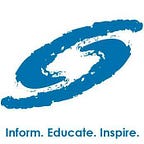It’s not all sunshine and rainbows
By Rajiv Movva, senior at The Harker School and Regeneron Science Talent Search 2018 finalist
The mixture remained a dull brown, reminding me that another evening had slipped away without success. Why was I here, again? My science project really meant swirling around a beaker every day, fingers-crossed that my solution would blush red like in the pictures. This wasn’t the type of serious scientific research that I wanted to be conducting.
Determined to spend my summer doing more meaningful scientific research instead, I contacted every local professor I could find. One of them, a renowned biochemist responded affirmatively. He gave me a tour of his state-of-the-art genomics lab stocked with machines I’d never seen before: “fluorescence microscopes” and “DNA sequencers.” From the expensive equipment to the personalized lab coats everyone wore, the professionalism of it all convinced me that meaningful scientific research happened here.
But that summer wasn’t all sunshine and rainbows.
No sooner had I dusted off my desk than my new neighbors welcomed me with a tower of background papers to catch up on–and then it was off to a meeting, where my mentor took me on a whirlwind tour of her corner of the scientific universe. I latched onto a couple things, and she tossed me a flash drive containing “everything I’d need.” But back at home, I realized I’d been pointed to a mountain of data without a map. Googling my way through one sentence of a paper revealed five other terms I’d need to learn. In true Sisyphean fashion, every step up the hill only showed that I had further to go.
Maybe I’d bit off more than I could chew. Certainly, my project was ambitious: I was trying to model the effects of DNA mutations to identify genetic drivers of breast cancer. Weeks passed before I’d realized my initial dataset wouldn’t cut it, meaning I’d have to design and conduct my own wet lab experiments. Following structured protocols sounded easy enough, but they ended up bringing a whole host of new issues to deal with. Sure, pipetting was peaceful, until a stray slip of the finger erased days of work. Procedures that grad students breezed through in minutes took me hours, and so I didn’t get very far that summer.
Despite zero results, spending three months beside so many successful scientists had cultivated my curiosity. I was hungry for progress, and perhaps all I needed was a slightly different approach to my research problem. My previous mentor introduced me to Anshul Kundaje, a genetics professor focused on applying computational methods to understand human DNA. He penciled me in for a 15-minute Skype interview, but over the next hour, he showed me how the formal elegance of math could be applied to subtle patterns from large genetic datasets. Mathematical problem solving was the name of my game back in my MATHCOUNTS days–finally, I’d found my way back to home court, so maybe this was my best chance at success.
By the end of that summer, Anshul suggested I present at a lab meeting before returning to school–an offer I couldn’t refuse. For those last few days, I was a coffee-guzzling machine, cranking out code day and night to finalize my conclusions. Suddenly I was standing at the round table, trying to convince 15 experts that my work was worth their time. Eyes glazed over as I shuffled through my intro, only to light up with surprise and skepticism when I hit my first slide of results. They fired off a barrage of questions loaded with jargon I once struggled to even translate. But that day they were speaking my language, and I effortlessly explained away their doubts. My voice got faster and louder as I approached my proudest work, hitting crescendo just as I flipped to the last slide and let my numbers do the talking. No attempts were made to hide the proud grin I wore.
I sat down to an eruption of applause, a rare occurrence there. Anshul himself called my work “fantastic,” a compliment that meant everything coming from him. I’m not going to lie, that summer was long, and success didn’t come easy. But right then, I was sitting side by side with my heroes, and that moment alone was worth every last hour.
